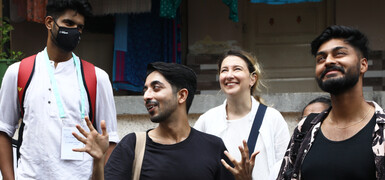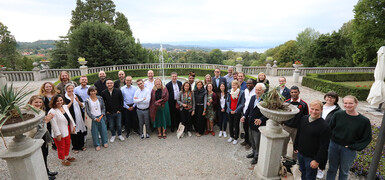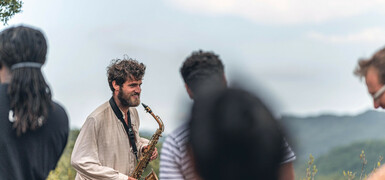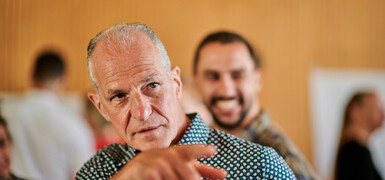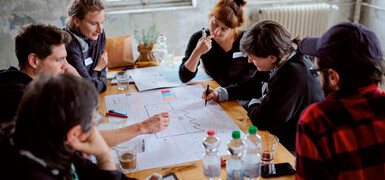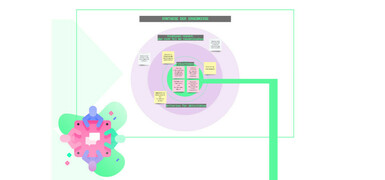
Learning Lab: Thinklab 2.0 (2020)
Walk the Talk in a VUCA Experience
Along with developing tools like the Strategy Builder, we also cooperate with partners to create formats around specific topics. The virtual seminar “ThinkLab 2.0” was organized by the Bundesverband Deutscher Stiftungen and the Deutsche Stiftungsakademie, and facilitated by the iac Berlin. Here, we addressed such questions as:
How can foundations collaboratively develop new strategies?
Starting from the assumption that collaboration is the suitable strategy for creating impact in a volatile, uncertain, complex, and ambiguous environment–the notorious VUCA scenario - a group of representatives from German and Swiss foundations worked on this issue in a 3-workshop series throughout the year. During the first lab in January 2020, the theoretical background of collaborative strategies was discussed and explored through methods derived from design thinking, bar camp formats and working with our Strategy Builder (see page 14).
Soon after, the first COVID19-lockdown forced participants and facilitators alike to walk the talk and adapt the upcoming sessions to the new circumstances. Agile VUCA-management in a real-life setting.
Agile working and adaptability
Together, we experimented with different online and hybrid formats,
including a variety of tools to co-create a productive, open and
trustful learning environment. Agile working and adaptability became
living concepts as the group analyzed the great potential of and
possible barriers to comprehensive collaboration among foundations.
3 specific topics served as the basis for discussion throughout the workshop series:
- Room for individual action
- The role of organizations
- The transformation in the field of philanthropy
Working on a case that centered around the contribution of foundations in reaching the UN Sustainable Development Goals (SDGs), these 3 levels of impact provided the background for a highly relevant and timely discussion on how collaborative strategies can be essential to approaching complex challenges.
Yet, the real value of the ThinkLab 2.0 format was the motivation, openness, trust, and fun that guided the learning process and highlighted the advantages of collaborative strategies in the philanthropic field.
Stiftungswelt magazine featured the ThinkLab 2.0 with a 3-page feature in its autumn 2020 edition. The magazine is available as free PDF download.
Do you want to learn more about Impact Alliances and how to implement their strengths? Or do you want to experience a Learning Lab with us as well?
Please contact:
Darius Polok
darius.polok@iac-berlin.org
